How to Start Learning AI as a Student: A Complete Beginner’s Guide

Artificial Intelligence is becoming one of the most important skills for the future. As digital tools continue to grow and automation becomes increasingly common, many students want to understand how AI works.
As a result, learning AI early has become a significant advantage. It is no longer just for computer science students; anyone preparing for a modern career can benefit from it.
To help students understand AI and how to utilise it for their career growth, this article will discuss how to learn AI as a student. It explains the skills they need, the tools they can use, and beginner projects they can try. The goal is to simplify the journey and make AI understandable for learners at school or early college levels.
Why Students Should Start Learning AI Early?
AI is shaping every industry from medicine and climate science to entertainment and finance. Starting early helps students build a strong foundation and prepares them for future academic and career opportunities.
Learning about AI at an early stage is helpful in many ways, such as:
- It strengthens logical and analytical thinking
- Encouraging problem-solving and creativity
- Developing future-ready digital skills
- Boosting confidence in handling technology
- Opening doors to competitions, internships, and innovation projects
Understanding these advantages gives clarity on how to learn AI as a student with purpose and direction.
Read in brief about how to use AI.
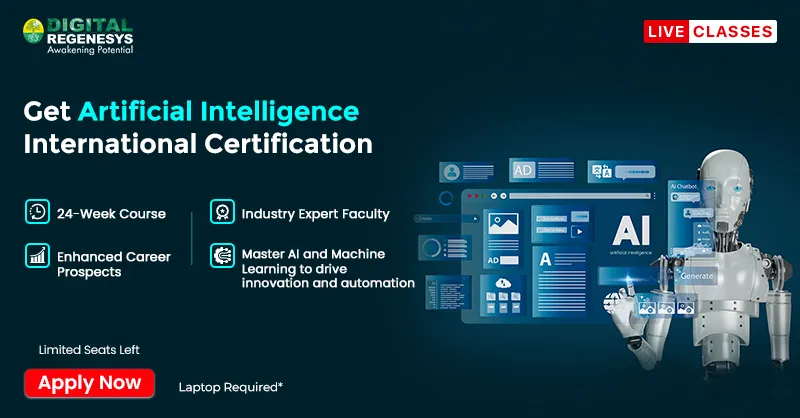
Build a Strong Understanding of AI Basics
Before learning about coding, students must understand fundamental AI concepts. This ensures they can connect what they learn later with real-world applications.
This table explains the core concepts students should know:
|
Key Concept |
Simple Meaning |
Why It Matters |
|
Artificial Intelligence |
Machines that imitate human thinking |
Forms the foundation of all AI topics |
|
Machine Learning |
Teaching computers using data |
Used in most modern AI applications |
|
Deep Learning |
AI that uses neural networks |
Powers’ vision, speech and advanced tools |
|
Information used to train AI models |
Essential for building intelligent systems |
These basics create a clear starting point in the AI learning path for students, making advanced topics easier to understand later.
Read more about the Benefits of machine learning.
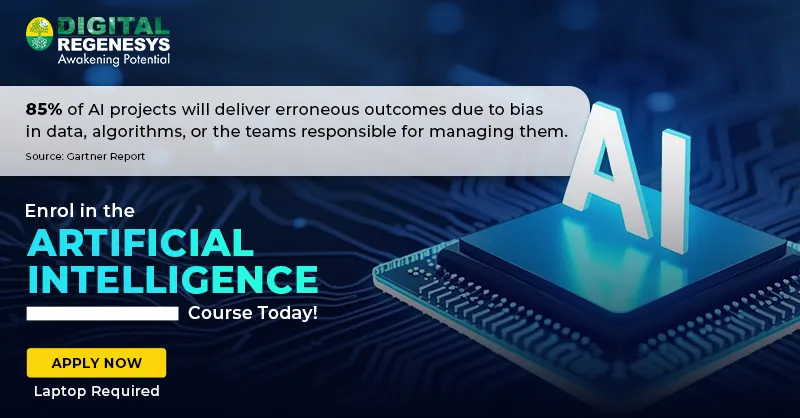
Learn Python Programming Step-by-Step
Python is the most recommended programming language for beginners. Students do not need prior coding experience; they can start with simple commands and gradually move to AI-related tasks.
Some of the beginner Python topics to focus on are as follows:
- Variables and data types
- Loops and conditional statements
- Functions and basic debugging
- Lists, dictionaries, and strings
- Simple programs like calculators or pattern printing
Even small daily practice sessions can significantly boost students’ confidence as they explore how to learn AI effectively.
Choose the Right Beginner AI Course for Students
A structured course helps students follow a logical sequence of events. Without guidance, many learners feel lost or skip important basics.
When selecting a beginner AI course for students, look for:
- Short, easy-to-understand lessons
- Visual explanations and live demonstrations
- Real datasets and hands-on mini-projects
- Cloud-based environments to avoid installations
- Age-appropriate examples and assignments
A good course offers direction, clarity, and motivation, strengthening any AI learning path a student chooses.
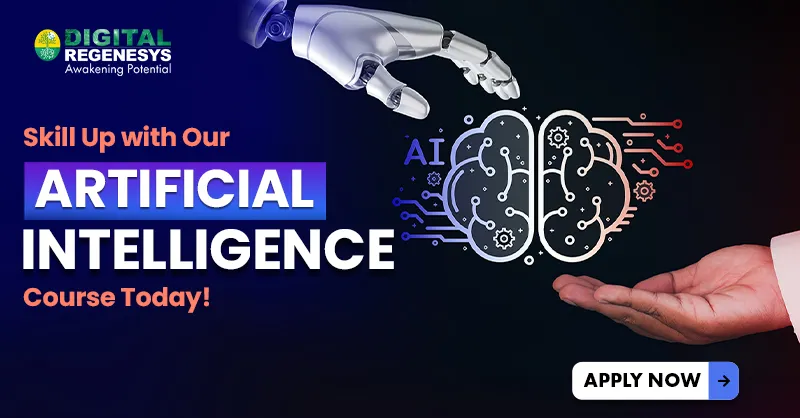
Practice with Small and Simple AI Projects
Learning AI becomes enjoyable when students apply concepts to real mini-projects. These activities encourage exploration and creativity while strengthening technical understanding.
Some of the beginner-friendly AI project ideas can be:
- A chatbot answering simple questions
- A system predicting student grades
- An image classifier identifying animals
- A spam/ham email classifier
- A recommendation system for books or movies
Such projects not only build strong AI skills in students but also provide portfolios for competitions or scholarships.
Develop the Most Important AI Skills for Students
AI learning involves both technical and soft skills. Students who develop both types become better problem-solvers and more innovative thinkers.
Technical Skills include:
- Python programming basics
- Understanding datasets and simple data cleaning
- Basic machine learning workflows
- Using beginner-friendly AI tools and platforms
Soft Skills include:
- Critical thinking
- Creativity in solving problems
- Communication for explaining ideas
- Curiosity and willingness to experiment
A strong mix of these skills leads to long-term success in any AI learning path for students.
Get insights on the Best programming language for AI.
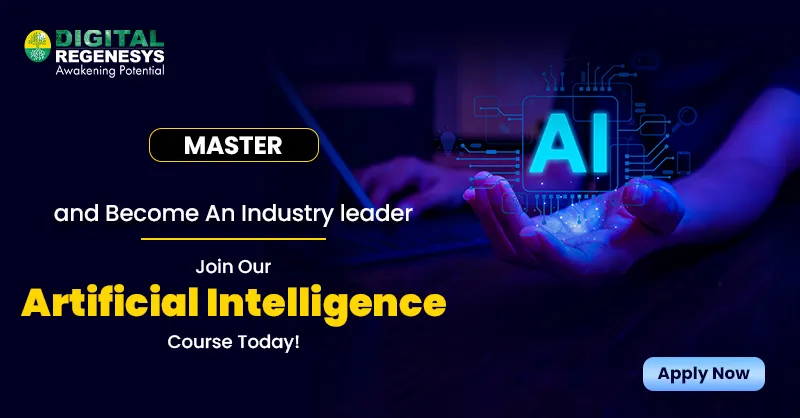
Explore Beginner-Friendly AI Tools
Some tools help students build AI projects without heavy coding. These tools can accelerate learning and boost creativity.
Easy AI Tools for Students: Uses and Benefits
|
Tool |
Use Case |
Student Benefit |
|
Google Teachable Machine |
Image, sound & pose recognition |
Drag-and-drop simplicity |
|
Scratch AI Extensions |
Basic AI in games |
Great for young beginners |
|
IBM Watson Assistant |
Chatbot building |
Helps understand AI communication |
|
Microsoft Azure AI |
Vision & language tools |
Professional but student-friendly |
Using these tools alongside a beginner AI course provides learners with a broad, interactive experience.
Create a Consistent Learning Routine
Consistency helps students progress steadily even more than big study sessions.
Usually, the Recommended Study Routine is as follows:
- Daily: Spend 20–30 minutes on Python or AI basics
- Weekly: Work on a small project or experiment
- Monthly: Try learning a new tool, library, or AI application
- Every 3–4 months: Build a slightly bigger project (chatbot, classifier, basic app)
This helps students stay committed to their AI learning path for students without feeling overwhelmed.
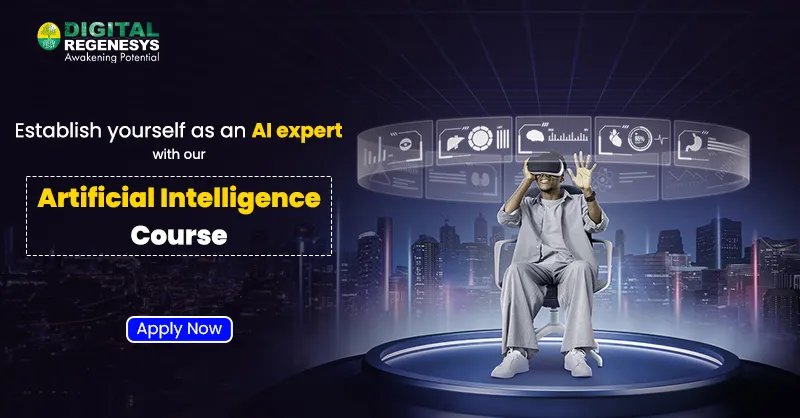
Follow AI Trends and Updates
AI is constantly evolving. Students should stay informed to remain competitive and knowledgeable about new opportunities.
Students can stay updated through the following ways:
- Social media (YouTube, LinkedIn, Instagram)
- Blogs and newsletters.
- AI communities on Discord and Reddit
- School or college AI clubs
- Online competitions by participating virtually or physically.
Staying updated boosts confidence and enhances AI skills over time for students.
Explore Future AI Career Opportunities
Once students gain basic knowledge, they can explore various AI career paths. Early exposure provides clarity on future educational and career goals.
Some of the Popular AI Career Options include:
- Data Scientist
- Machine Learning Engineer
- Robotics Engineer
- AI Research Assistant
- Business Data Analyst
- AI Product Manager
A strong foundation from school years can make any student future-ready for these fast-growing fields.
Read in brief about Career opportunities in AI.
Why Choose Digital Regenesys for Your AI Learning?
Choosing Digital Regenesys is a great step for students starting their AI journey. The platform makes difficult ideas simple and easy to understand.
It follows a clear learning path that starts with the basics and slowly moves to real-world AI skills. The course includes hands-on projects that help students practise what they learn. It also offers guided lessons and helpful resources so students can learn with confidence.
With expert mentors, flexible online classes, and globally recognised certification, the AI course by Digital Regenesys provides students with a practical and accessible pathway to develop essential AI skills for students and build a strong early foundation in AI.

Conclusion
Starting your AI journey as a student becomes much easier when you follow a clear plan. You build strong basics and improve your skills by practising often and working on real projects.
With the right support and a curious mindset, you can confidently step into future careers shaped by AI and new technology. Learning early helps you stay ahead, think better, and create useful solutions.
Join Digital Regenesys for guided, practical, and future-ready learning. Choose the best way to accelerate your progress and unlock your true potential.
Last Updated: 28 January 2026
